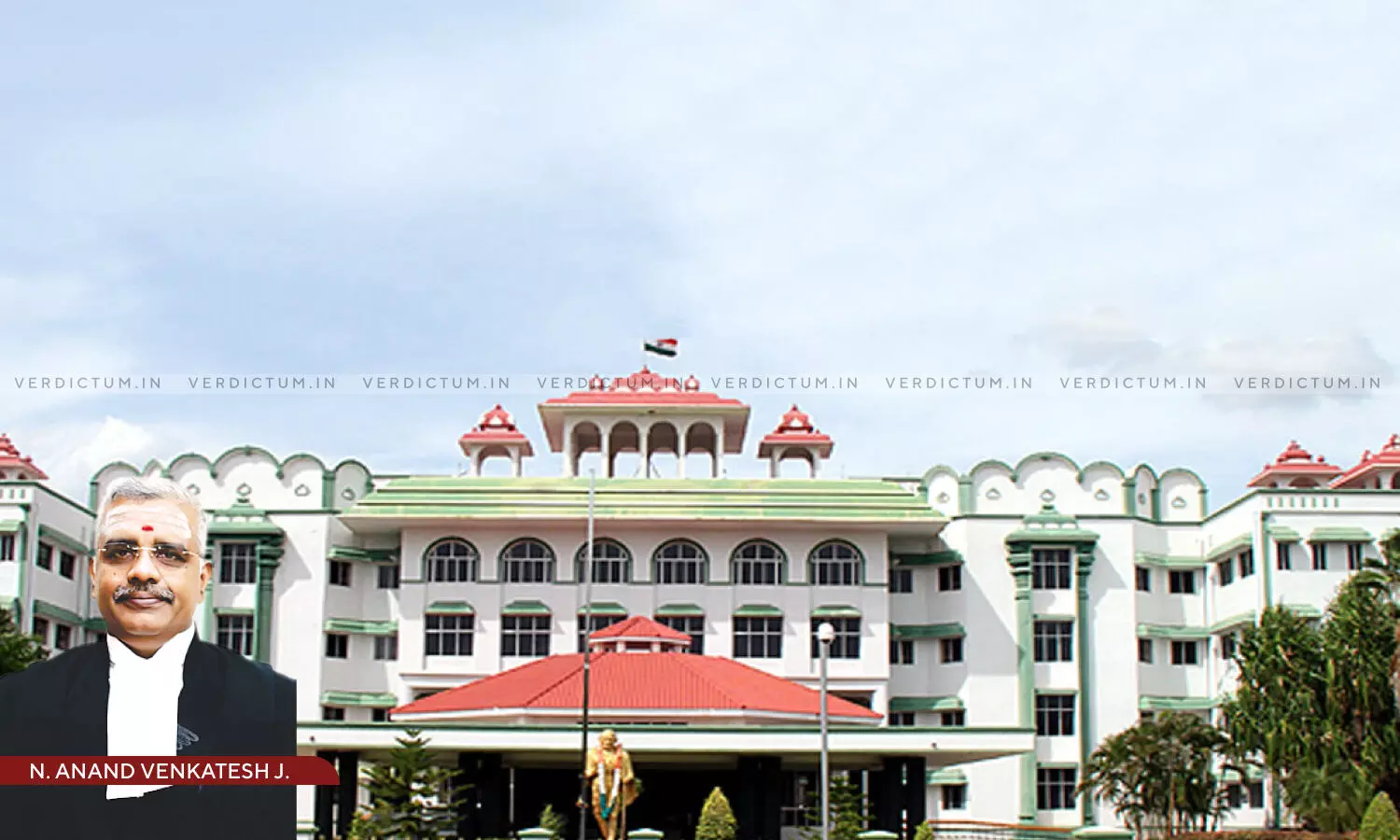
If Handled With Kid Gloves, Anyone Will Make Such Reckless Statements & Tender Apology To Escape Consequence: Madras HC Denies Anticipatory Bail In Hate Speech Case
 |
|The Madras High Court refused to grant anticipatory bail in a hate speech case observing that if such cases are handled with “kid gloves,” then anyone will make such reckless remarks and tender an apology to escape the consequences.
The Madurai Bench dismissed the Petition for an Anticipatory Bail filed by actress and social worker Kasthuri (Petitioner) after an FIR was registered against her under Sections 294(b), 196(1)(a), 197(1)(c), 352, and 353(3) of the Bharatiya Nyaya Sanhita, 2023 (BNS) and Section 67 of the Information Technology Act, 2000. The Petitioner sought anticipatory bail in connection with derogatory statements made by her against Telugu speaking people.
A Single Bench of Justice N. Anand Venkatesh held, “A strong message must be sent by the court to the effect that whenever such scurrilous and derogatory statements are made by any person bordering hate speech and thereafter he is caught and prosecuted in accordance with law, tendering apology as a matter of course to escape the consequence cannot be entertained. If it is handled with kid gloves, anyone will make such reckless statements and tender an apology to escape the consequence. One has to own up the responsibility. The words uttered are like the arrow which has already left the bow and it will reach its destination and cause the damage and hence a halfhearted apology will not cure the damage that has already happened.”
Senior Advocate A.K. Sriram appeared for the Petitioner, while Additional Advocate General R. Bhaskaran represented the Respondent.
The case originated from a video circulating online where the Petitioner was seen delivering a speech at a Brahmin's meet. According to the prosecution’s case, during the speech, Kasthuri allegedly made remarks against women belonging to a particular community.
The Petitioner contended that the speech reflected her views on “how the Brahmin community had been denied the identity of ‘Tamizhian’.” It was argued that the statements must be interpreted in context rather than through selected excerpts that, she argued, were lifted from that speech and given a convoluted meaning.
Following the speech, when informed that the statements had hurt some Telugu-speaking persons, the actress posted a twitter message explaining her stand and “expressed her regret.”
In its observations, the High Court recounted the speech and noted that the Petitioner described Telugu-speaking people as individuals who had historically served “wives and concubines living in a quarters reserved for them (Andhapuram) of a King.” The Bench pointed out that, while the statement did not directly target the women of the specific community, it portrayed all Telugu-speaking people in a “bad light.”
The Court remarked that “freedom of speech is a fundamental right that empowers individuals to express their thoughts, beliefs and opinions,” but also clarified that this freedom should not be used to “spread hatred or cause communal disharmony.”
The Court observed that “our words can inspire change, foster understanding or conversely create division and animosity.” The Bench stated that the Petitioner’s statements bordered on “hate speech,” particularly in light of the impact her statements could have on Tamil and Telugu-speaking communities. The Court expressed concern over the “ticking bomb” nature of social media content, noting that statements can remain accessible indefinitely and “be used at any time to suit the situation.”
It was stated that “speeches must not be made to play to the gallery” and that public figures hold a responsibility to ensure that their statements do not foster animosity. Justice Venkatesh concluded that “even though the complaint states that the speech was directed against the womenfolk of the particular community,” upon review, “it is seen that the entire Telugu-speaking people have been demeaned.”
Consequently, the Court observed that “a message must be sent to all concerned that such fissiparous tendencies while making speeches will not be tolerated” and remarked that, “the words uttered are like the arrow which has already left the bow” and cannot be undone by a mere apology. The Court concluded with a reminder of the responsibility public figures hold, stating, “Wield your words with care and grace.”
Accordingly, the High Court dismissed the petition.
Cause Title: Kasthuri v. The State of Tamilnadu (Neutral Citation: 2024:MHC:3842)
Appearance:
Petitioner: Senior Advocate A.K. Sriram; Advocate M. Dinesh Hari Sudarsan
Respondent: Additional Advocate General R. Bhaskaran; Additional Public Prosecutor S. Ravi